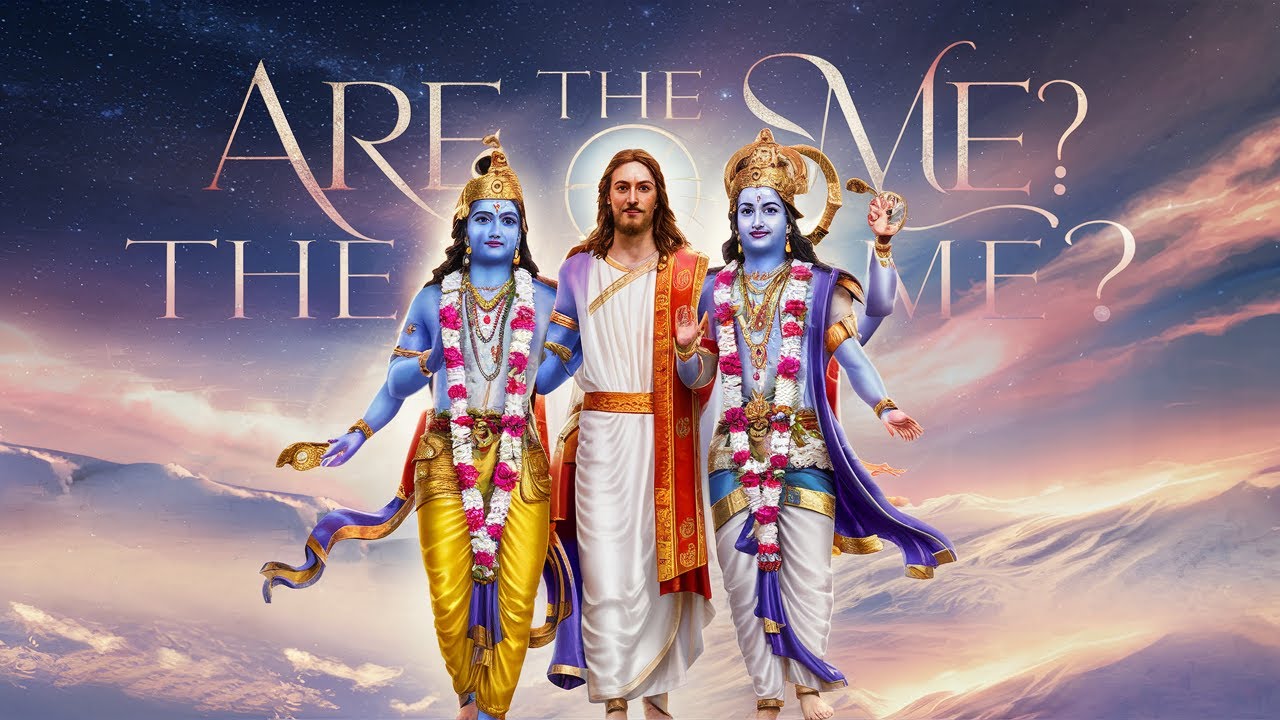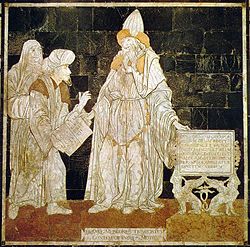<<><>><
It may really not be a call ![]() I could make, it’s probably over that, and I am kind of uncertain on it, so it’s either go with the flow, even if it’s a toss up between system error,
I could make, it’s probably over that, and I am kind of uncertain on it, so it’s either go with the flow, even if it’s a toss up between system error,
That is intrinsic, or something outside of that
The doknows are like diminishing turtles vying with the prefrontal hares seem to exhibit in their over the top confidence, ha?
Uh oh. Meno found the emoticons.
Yes think so especially: the abraxis involved in the triad tore, ( major~minor ) between father and son, consisting in doubled crossed lovers; where major arcanix mix with minor,
How?
Deluged and retro hyper engineered apparent levels are conjoined, so as to create anthropomorphic mirage, a compilation of what was, could be, what to look for.
Then the double cross leaves ![]() u in the lurch, and then both the father and son compare to both demean and exalt an assumed for simultainity with the highest metaphor the could imagine, of the one
u in the lurch, and then both the father and son compare to both demean and exalt an assumed for simultainity with the highest metaphor the could imagine, of the one ![]() they perceive most compelling to fit the fattest cat alive: yours truly
they perceive most compelling to fit the fattest cat alive: yours truly
( I hope to keep this in mind, so as not to confuse ((again.)))
Oh yes, ![]() i’m afraid.
i’m afraid.
…
![]() i’afraid, so
i’afraid, so
On the other hand, no pain, no gain
Why I am less and less afraid ![]() for self other:()selfother() other self:
for self other:()selfother() other self:
Because of this from the Lotus Sutra and then find some biblical equivalent( is there one?
<>
……Since I attained Buddhahood, the number of kappas that have passed is an immeasurable hundreds, thousands, ten thousands, millions, trillions, asamkhyas,
Constantly I have preached the Law, teaching, converting, countless millions of human beings, causing them to enter the Buddha way, all this for immeasurable Kalpas.
In order to save living beings,
as an expedient means I appear to enter nirvana but in truth I do not pass into extinction
I am always here, preaching the Law.
I am always here,
but through my transcendental powers
I make it so that living beings in their befuddlement do not see me even when close by
When the multitude sees that I have passed into extinction,
far and wide they offer alms to my relics.
All harbor thoughts of yearning
and in their minds thirst to gaze at me
When living beings have become truly faithful,
honest and upright, gentle in intent,
Single mindedly desiring to see the Buddha,
not hesitating even if it costs them their lives.
then and the assembly of monks
appear together on Holy ![]() Eagle Peak.
Eagle Peak.
At that time I tell the living being that I am always here, never entering extinction,
but that because of the power of expedient means
at times I appear to be extinct, at other times not, and that if there are living beings in other lands
Who are reverent and sincere in their wish
to believe,
then among them too
I will preach the unsurpassed Law
But you have not heard of this,
so you suppose that I enter extinction.
When I look at living beings
I see them drowned in a sea of suffering,
therefore I do not show myself,
causing them to thirst for me.
at last I appear and preach the Law for them.
Such are my transcendental powers
For Asamkhya kappas
Constantly I have dwelt on Holy Eagle ![]() Peak
Peak
and in various other places.
When living beings witness the end of a kappa
and all is consumed in a great ![]() fire,
fire,
this ,my land, remains safe and tranquil,
constantly filled with heavenly and human beings.
The halls and pavilions in it’s gardens and groves
are adorned with various kinds of gems.
Jeweled trees abound in flowers ![]() and
and ![]() fruit
fruit
where living beings enjoy ![]() themselves at ease.
themselves at ease.
The gods strike heavenly drums,
Constantly making many kinds of music.
Mandarava blossoms rain down
scattering over Buddha and the great assembly.
My pure land is not destroyed,
yet the multitude sees it as consumed in fire,
with anxiety, fear, ![]() and other sufferings
and other sufferings
filling it everywhere.
These living beings with their various offenses,
through causes arising from their evil actions
spend asamkhya kalpas
without hearing the name of the three treasures.
But those who practice meritorious ways,
who are gentle, peaceful, ![]() , honest, and
, honest, and ![]() upright,
upright,
all of them will see me
here in person, preaching the Law.
At times for this multitude
I describe the Buddha’s life span as immeasurable,
and to those who see the Buddha only after a long time
I explain how difficult ![]() is to meet a Buddha.
is to meet a Buddha.
Such is the power of my wisdom
that it’s sagacious beams shine without measure.
This life of countless kappas
I gained as a result of lengthy practice.
You who are possessed of wisdom
entertain no doubts on this point!
Cast them off , end them forever,
for the Buddha’s words are true, not false.
He is skilled like a physician
Who uses an expedient means to cure
his deranged sons.
Though in fact alive, he gives out he is dead,
![]() yet no one can say he speaks falsely.
yet no one can say he speaks falsely.
I am the father ![]() of this world,
of this world,
saving those who suffer and are afflicted.
Because of the befuddlement of ordinary people,
though I live, give out word that I have entered
extinction,
For if they see me constantly,
arrogance and selfishness arise in their minds.
to the five desired
and fall into evil ![]() paths of existence.
paths of existence.
Always I am aware of which living beings
Practice the way and which do not,
and in response to their needs for salvation
I preach various doctrines for them.
At all times I think ![]() to myself:
to myself:
How can I cause living beings
to gain entry into the unsurpassed way
and quickly acquire the body of a Buddha?
- from the Lotus Sutra Opening and Clising.Sutras.
While the SGI mantra ![]() is going on, the interesting
is going on, the interesting ![]() comparison with the Biblical analogy if there is is one.
comparison with the Biblical analogy if there is is one.
We all die alone Menoooo
The lotus sutra appears to follow chronologically the founding of Christianity (and certainly the Judaism of which Christianity is the fulfillment). Doubting Thomas was in India in the 52nd year of the common era [ wink ]. He was martyred there 20 years later. Far be it from me to presume the lotus sutra was composed many years after the death of Siddhartha Gautama as a way of extinguishing the fire set by Thomas. Looks like it didn’t quite work out. Sometimes our efforts to extinguish actually fan the flames.
<>
Certainly true!
That is not arguable, but, at or near the endless end of time, the temporality along with the spatial arrangement inverts, and the past may be recovered.
Recovered when it has been covered for so long and many times before, and after, do that the difference becomes nil.
Besides who are we, or will be to determine who we actually were?
No one certainly to speak of and definitely. It any one. Jesus never said He was the Son of God, He said He was the Son of Man.
That’s not to say He was not God’s Son, as coming from God, from that perspective He for certain Was God.
Such artificial subtleties miss the mark, for He so Lived the World as to ……
His Only Begitten Son……
No, we never die alone. We are born and die in and with His faithful brotherhood, in the present, where there is no preceeding past or future.
He never dies and we neither as long there is Absolute Faith in Him.
In that sense it makes no difference what we believe, as the Faith In Him gives us certainty and creedence, that is a given irrespective of our doubts, that only proves how human we are, only human.
(The Varieties of Religious experience foreshadowed the microcosmic importance or relatively shifting perspectives and the zero sum of contentious difference is earned primarily by God’s messenger, the Redeemer King in and through Himself, and by Himself. He is God, man sent through time to ascertain alpha and omega, through the evolution of his Spirit, that has to be re-covered again, lest we totally forget whence we came, where from and who we were intended to become.)
But don’t get me wrong, this begins with the Other-other and ends with us-you&me.
One thing the lotus sutra captures is the very confusing language of when Jesus or his followers are recorded saying things about him like (paraphrasing) this wasn’t true about me/him until I/he actually did what I/he was incarnated to do … together with his position prior to his incarnation being restored as if he lost something when he incarnated. Stuff like that.
…but that is resolved by the reality of existential import (action)…
Which, if I understood it correctly, is why people shouldn’t freak out so much about Schrödinger’s cat.
¡meow!
If they would not be stuck there, primordially ,
—
But here is something else?!? If a picture could captche a thousand words
())(()
)()(
Hermes Trismegistus may be associated with the Greek god Hermes and the Egyptian godThoth.[1][3] Greeks in the Ptolemaic Kingdomof Egypt recognized the equivalence of Hermes and Thoth through the interpretatio graeca.[4] Consequently, the two gods were worshiped as one, in what had been the Temple of Thoth in Khemenu, which was known in the Hellenistic period as Hermopolis.[5]
Hermes, the Greek god of interpretive communication, was combined with Thoth, the Egyptian god of wisdom. The Egyptian priest and polymath Imhotep had been deified long after his death and therefore assimilated to Thoth in the classical and Hellenistic periods.[6] The renowned scribe Amenhotep and a wise man named Teôs were coequal deities of wisdom, science, and medicine; and, thus, they were placed alongside Imhotep in shrines dedicated to Thoth–Hermes during the Ptolemaic Kingdom.[7]
Cicero enumerates several deities referred to as “Hermes”: a “fourth Mercury (Hermes) was the son of the Nile, whose name may not be spoken by the Egyptians”; and “the fifth, who is worshiped by the people of Pheneus [in Arcadia], is said to have killed Argus Panoptes, and for this reason to have fled to Egypt, and to have given the Egyptians their laws and alphabet: he it is whom the Egyptians call Theyt”.[8] The most likely interpretation of this passage is as two variants on the same syncretism of Greek Hermes and Egyptian Thoth (or sometimes other gods): the fourth (where Hermes turns out “actually” to have been a “son of the Nile,” i.e. a native god) being viewed from the Egyptian perspective, the fifth (who went from Greece to Egypt) being viewed from the Greek-Arcadian perspective. Both of these early references in Cicero (most ancient Trismegistus material is from the early centuries AD) corroborate the view that Thrice-Great Hermes originated in Hellenistic Egypt through syncretism between Greek and Egyptian gods (the Hermetica refer most often to Thoth and Amun).[9]
Hermes Trismegistus, floor mosaic in the Cathedral of Siena
The Hermetic literature among the Egyptians, which was concerned with conjuring spirits and animating statues, inform the oldest Hellenistic writings on Greco-Babylonianastrology and on the newly developed practice of alchemy.[10] In a parallel tradition, Hermetic philosophy rationalized and systematized religious cult practices and offered the adept a means of personal ascension from the constraints of physical being. This latter tradition has led to the confusion of Hermeticism with Gnosticism, which was developing contemporaneously.[11]
The epithet "thrice great"edit
Fowden asserts that the first datable occurrences of the epithet “thrice great” are in the Legatio of Athenagoras of Athens and in a fragment from Philo of Byblos, circa AD 64–141.[12] However, in a later work, Copenhaver reports that this epithet is first found in the minutes of a meeting of the council of the Ibiscult, held in 172 BC near Memphis in Egypt.[13]Hart explains that the epithet is derived from an epithet of Thoth found at the Temple of Esna, “Thoth the great, the great, the great.”[4]
Many Christian writers, including Lactantius, Augustine, Marsilio Ficino, Campanella, and Giovanni Pico della Mirandola, as well as Giordano Bruno, considered Hermes Trismegistus to be a wise pagan prophet who foresaw the coming of Christianity.[14][15] They believed in the existence of a prisca theologia, a single, true theology that threads through all religions. It was given by God to man in antiquity[16][17] and passed through a series of prophets, which included Zoroaster and Plato. In order to demonstrate the verity of the prisca theologia, Christians appropriated the Hermetic teachings for their own purposes. By this account, Hermes Trismegistus was either a contemporary of Moses,[18] or the third in a line of men named Hermes, i.e. Enoch, Noah, and the Egyptian priest king who is known to us as Hermes Trismegistus[19] on account of being the greatest priest, philosopher, and king.[19][20]
Another explanation, in the Suda (10th century), is that “He was called Trismegistus on account of his praise of the trinity, saying there is one divine nature in the trinity.”[21]
Hermetic writingsedit
Main article: Hermetica
During the Middle Ages and the Renaissance, the Hermetica enjoyed great prestige and were popular among alchemists. Hermes was also strongly associated with astrology, for example by the influential Islamic astrologer Abu Ma’shar al-Balkhi (787–886).[22] The “Hermetic tradition” consequently refers to alchemy, magic, astrology, and related subjects. The texts are usually divided into two categories: the philosophical and the technical hermetica. The former deals mainly with philosophy, and the latter with practical magic, potions, and alchemy. The expression “hermetically sealed” comes from the alchemical procedure to make the Philosopher’s Stone. This required a mixture of materials to be placed in a glass vessel which was sealed by fusing the neck closed, a procedure known as the Seal of Hermes. The vessel was then heated for 30 to 40 days.[23]
During the Renaissance, it was accepted that Hermes Trismegistus was a contemporary of Moses. However, after Isaac Casaubon’s demonstration in 1614 that the Hermetic writings must postdate the advent of Christianity, the whole of Renaissance Hermeticism collapsed.[24] As to their actual authorship:
… they were certainly not written in remotest antiquity by an all wise Egyptian priest, as the Renaissance believed, but by various unknown authors, all probably Greeks, and they contain popular Greek philosophy of the period, a mixture of Platonism and Stoicism, combined with some Jewish and probably some Persian influences.[25]
The French figurist Jesuit missionary to ChinaJoachim Bouvet thought that Hermes Trismegistus, Zoroaster and the Chinese cultural hero Fuxi were actually the Biblical patriarch Enoch.[26]
Various critical editions of the Hermetica have been published in modern academia, such as Hermetica by Brian Copenhaver.
Ding dong! The witch is dead! ![]()
Good , which, bad which








